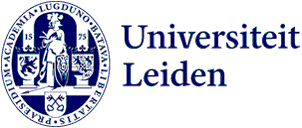Over 2700 euros to Liveable Planet project thanks to NSE respondents
Earlier this year, thousands of Leiden University students completed the National Student Survey (NSE). To express its gratitude, the university has donated a sum of €2,788.75 to the Leiden University Fund (LUF) towards the Liveable Planet research project.
Over a period of eight weeks, the NSE was completed by 11,155 Leiden University students - a response rate of over 33%. Students from the faculties of Science and Archaeology had the highest response rate with 39% each.
The NSE is a large-scale national survey in which students give their opinion on their study programme, including aspects such as content, guidance and relevance for the job market.
This year, by completing the survey, students contributed not only to better education but also to research on the link between invasive aquatic plants and mosquitoes. For every student who completed the NSE, the university donated €0.25 to the Liveable Planet research project. A total donation of €2,788.75.
Liveable Planet
As a result of climate change, invasive floating aquatic plants are spreading rapidly in the Netherlands. A disaster for biodiversity and also potentially for public health. At the same time, we are seeing a rise in the number of mosquitoes, including species that can transmit diseases such as West Nile virus and malaria. Ecologist Emily Strange is investigating whether aquatic plants provide breeding grounds for mosquitoes.
On 25 June, Nalani Verwoord, assessor at the Faculty of Science, presented the cheque on behalf of Leiden University to Michiel Veldhuis, a colleagues of Emily Strange.
Verwoord (translated from Dutch): 'I am delighted to present this cheque. I have attended lectures given by Dr. Emily Strange and am proud that she is part of my faculty.'
Veldhuis (translated from Dutch): 'I am very pleased with this donation. In our work, we want to use Environmental DNA (eDNA). This can be used to analyse water samples and detect the DNA of all the species that live in them. eDNA is fast and accurate, but also very expensive. Thank you very much for your support'.

NSE results expected in September
The results are currently being analysed and the university expects to receive this year's NSE report in September.
The response data will first be processed per study programme and all open responses and university-wide outcomes will be analysed. The NSE is an important feedback tool for Leiden University. And this year, thanks to the high response rate, the results will be even more useful. On the basis of the NSE results, the university can work towards improving education and facilities at all levels - from the Executive Board to the Programme Committees.
